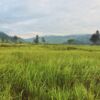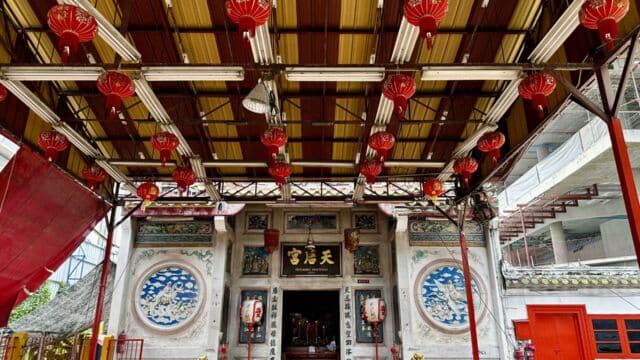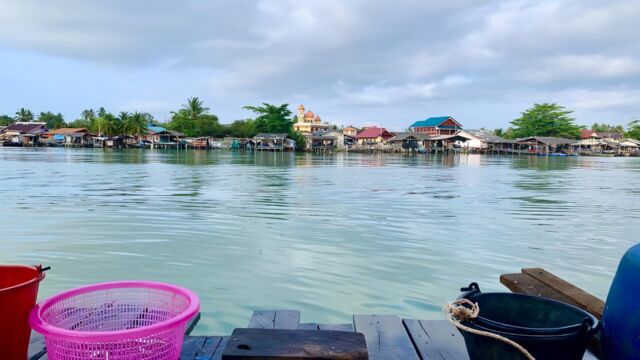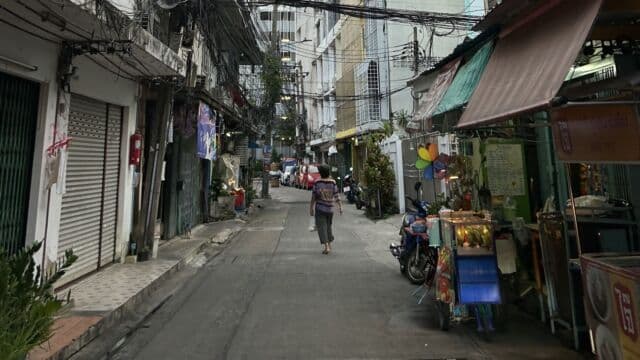Making Tracks
Photo: Nopparuj Lamaikul/Unsplash
The Thailand train system | 1,897 words
Translated from Thai by Wichayapat Piromsan
“Love is a train ride, I heard people say.
Each has a ticket, going their own way.”
Song for Tomorrow is a 2007 album by the Thai pop band Friday. It was released when I was in high school. Back then, I liked listening to an entire album in one sitting, following a recommendation from teen magazines. I discovered songs like “Too Close,” “I Like It Now,” etc. But the song that most resonated with me was a song about a train. It portrays living life as catching a train heading somewhere.
A few years after the release of Song for Tomorrow, when I had to start preparing for the university entrance examinations, the train song echoed again in my mind, tempting me to make tracks.
Warin Chamrap District where I was born and lived until that time was quite urbanized. The province’s biggest university is located there, as are the province’s biggest produce markets, like Warin Market and Warin Charoensri. Not to mention major hospitals and military bases. Despite all it had to offer, my younger self still yearned for greener grass elsewhere.
And where was that? It was the center of all civilization in Thailand. Where the best university is located. Where people I wanted to meet, and whose stories I wanted to hear, were living. Every day of my teen years I would think about jumping on the train to that coveted destination.
The regional railway system of my hometown is considered the artery of the South Isaan, with Ubon Ratchathani Train Station at its heart. If you have commuted on the Northeastern Line from Krung Thep Aphiwat Central Terminal to the southernmost part of Isaan you will know that the terminal station is not actually in Ubon Ratchathani itsef but a smaller district called Warin Chamrap, on the other side of the Mun River. Warin Chamrap was the starting point for many travelers, as well as the finishing line for those ending their journey.
I came to the station often to see people off. I would look down at the train tracks and ponder what stories this space must contain.
For many, the transition between high school and university is a major event, and it was no different for me. Decisions we make in this phase define our whole lives.
I vividly remember my first train trip to Bangkok, when I followed my dream of going far away.
*
“My love life is like catching a random train.
I don’t know the destination, or where the journey will end.”
In the era of European imperialism France colonized Laos, Cambodia, and Vietnam. The ambitions didn’t stop there, and Siam became an invasion target. One of the things Siam did was to showcase its civilization through an advanced railway system to resist colonization. The Siamese government hastened to equip itself with railway engineering. The construction of the Northeastern Line was in fact the first to begin, in 1900. Ubon Ratchathani Station opened in 1930.
If you ask me about the trains leaving Ubon Ratchathani, the first route that comes to my mind is train number 136, which I took when I first went to Bangkok.
Some memories fade, yet some remain vivid. The station after Ubon Ratchathani, at 7 am, was in Sri Saket province, where lots of people boarded. Then it went through Huai Thap Than district, whose main attraction was an influx of vendors entering the carriages to offer grilled chicken on madan skewers, Huai Thap Than’s renowned dish that passengers cannot miss. Then the train headed to Surin province, another big city in the south of Isaan, before crawling into Burirum, city of Khmer civilization. The square in front of Buriram Station was scattered with street vendors selling meatballs, said to be so delicious that people had to eat them right there and then without even bothering to find a place to sit down. These meatballs have since been popularized by a pop singer and have become Buriram’s most famous delicacy.
The train made a ten-minute stop at Chira Junction in Nakhon Ratchasima, nicknamed Korat, before continuing its journey. The afternoon on this route was awaited by many, because the train went through Sikhio district, presenting passengers with the scenery of Lamtakong Dam. The vast body of water reflecting seemingly endless sky receded into the distance and the train approached Pakchong Station, a highly urbanized district. This station was a popular stop for backpackers wanting to continue to Khao Yai National Park.
The remaining stations were Saraburi and Pathumthani before we entered Bangkok City. At that age, I perceived the journey on a third-class train as fun despite its narrow seats and barely-functioning ceiling fans.
“Clickety-clack, let us go slack”, an onomatopoeia Thai people give to trains because of their tardiness, perfectly sums up the reality of train travel in that time. If you decided to commute with this metal tube, you had to be at peace with how your hours would be wasted and sacrifice some level of comfort, which could be found quite easily in other transport modes.
My penchant for train rides might be an over-romanticization of idleness. Trains might only be for people who have time to spare, or for those who want to take a journey within, to let thoughts crystallize, arrive at some conclusion about their lives. The train is the mode of transportation I resort to whenever I have something I need to turn over in my mind before I move forward.
*
“I saw many missed the train.
Some just headed off without bidding farewell.”
2010 was my first year at university. I was accepted into the Faculty of Social Sciences at Thammasat University, which was what I was hoping for. That’s what I told my family, anyway. To be frank, I might have just wanted to attend Thammasat because I was mesmerized by glorious stories told in books and song lyrics or from the internet. Or maybe I just wanted to mimic people in the big city. To live on my own in a more refined city, see people, hear music, go places. I wanted to travel to the greener grass, and I would do so by train.
The night before I moved into my dormitory I was riding on the Special Express Number 24 from Ubon Ratchathani. The first half of May that year was when a ticking time bomb of political conflict finally exploded, taking many lives with it. A family, in shock, was riding this same train to bring the body of a lost loved one back home. I was not well-versed in political issues, but one didn’t have to understand politics to understand sorrow. Both political camps promised to bring Thailand to a better future, but neither could bring loved ones back. The family riding lived a stone’s throw from my own family. What a striking contrast: someone riding the train to seek a new life, others to retrieve a lifeless body. That must have been when I started to question the “green grass of Bangkok” image portrayed in pop culture.
Thai train enthusiasts will know that the closest station to Thammasat University is Chiang Rak Station, but express trains usually don’t stop at Chiang Rak. I had to get off at Rangsit Station at dawn, then transfer to a bus to the university, where I would start my four years on campus. I was just another regular student, doing the coursework required to graduate, to get a decent enough GPA, to get a job, to then start my own family, as social norms dictated.
But many of the train journeys I took during those subsequent four years opened my eyes. Bits and pieces of what I saw and heard have made me the person I am today. I was mesmerized by Bangkok’s culture, but attending university and meeting friends from different parts of Thailand exposed me to diverse cultures. I learned to look at life from the windows of both sides of the train. The past was always with me, but I embraced whatever the future held, wherever the train of life took me.


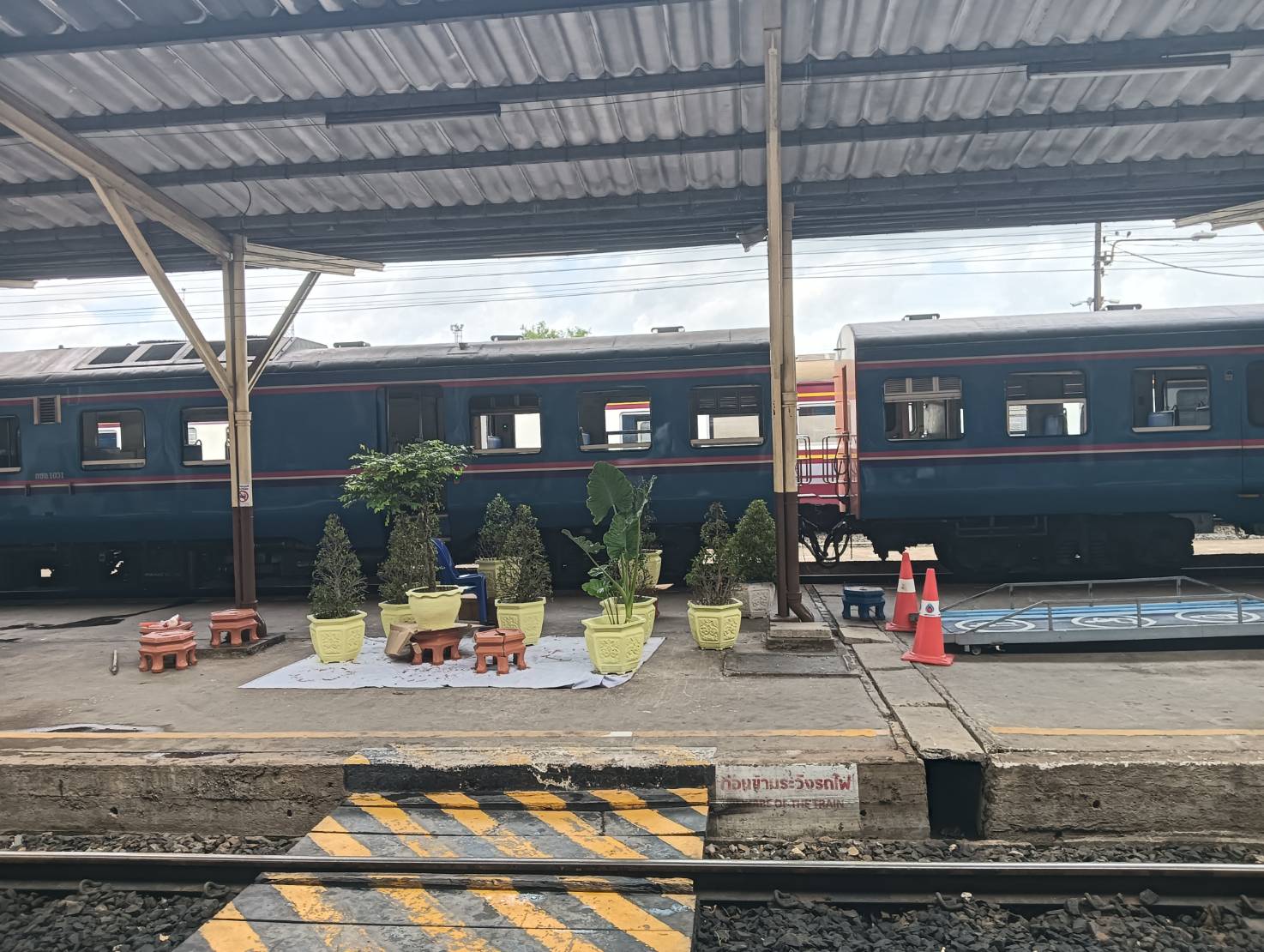
The train line to the easternmost part of the south took me to Libong Island in Trang Province. The trip was for a volunteering activity to build a canteen for schoolchildren. I experienced the culture of the local Muslim community, went out to the sea to see dugongs, and met kind-hearted people. I still think of this place often and want to go back.
I took the Northern Line to the Song District of Phrae Province. Song showed me the so-called “barren route”, and why we had to come here to help with rural development.
Then there was the Eastern Line, which ended in Sattahip. I took the train to a school in a rural area of Chonburi. There, I met students, shared my experiences at the university, and consulted them about degrees they could pursue.
All these journeys are priceless to me.
The train has introduced me to many other routes around the country. It has exposed me to people whose values might not align with mainstream society. Each has their own path; some might reach their destination later than others. Some might not even get to take the train at all, but I will never forget them, especially those whose paths have crossed with mine.
*
“How far, how long this train will go, I cannot foresee.
All I can do is let it be.
But for now, this train has to keep going… going until who knows how far.”
Now it’s early in the rainy season, and I am on the Skytrain in Bangkok heading to its terminal station Bang Yeekhan, listening to the song “Train” by Friday, which I’ve had on a loop for the entire week. It’s been quite a while since I’ve returned to Warin Champram, the train station of my hometown: the trains I’m taking now are the trains of the capital city. They are not long-distance rides, and their main purpose is to avoid Bangkok’s traffic. The train network has extended to cover all Bangkok, becoming the biggest train network in the country and the megacity’s primary mode of transportation. The gentrification happening along the train lines is unstoppable.
It’s been 14 years since I stepped onto the train that would supposedly take me to where the grass was greener. I arrived, but my train journey never stopped. From that teenager I’ve become a grown adult. I would say that I have followed the societal norms and that I have achieved what the mainstream would acknowledge people my age should achieve. But as the years passed I have not shaken off those mistakes I’ve made that I want to go back and fix, the opportunities I missed to do things I didn’t do.
I will never forget the thrill and joy I felt jumping on that first train. On later train trips, I’d become more mature, and knew how to get myself ready for what was to come. And as I took more trains, I discovered many challenges I had to overcome. Despite the many trains I’ve taken all these years, there are so many more trips I want to make.
My train will keep moving as long as I have the strength and as long as there are dreams to dream.
© Weerawat Somnuek
English translation © Wichayapat Piromsan
Commissioning editor: Natcha Sinkeree


